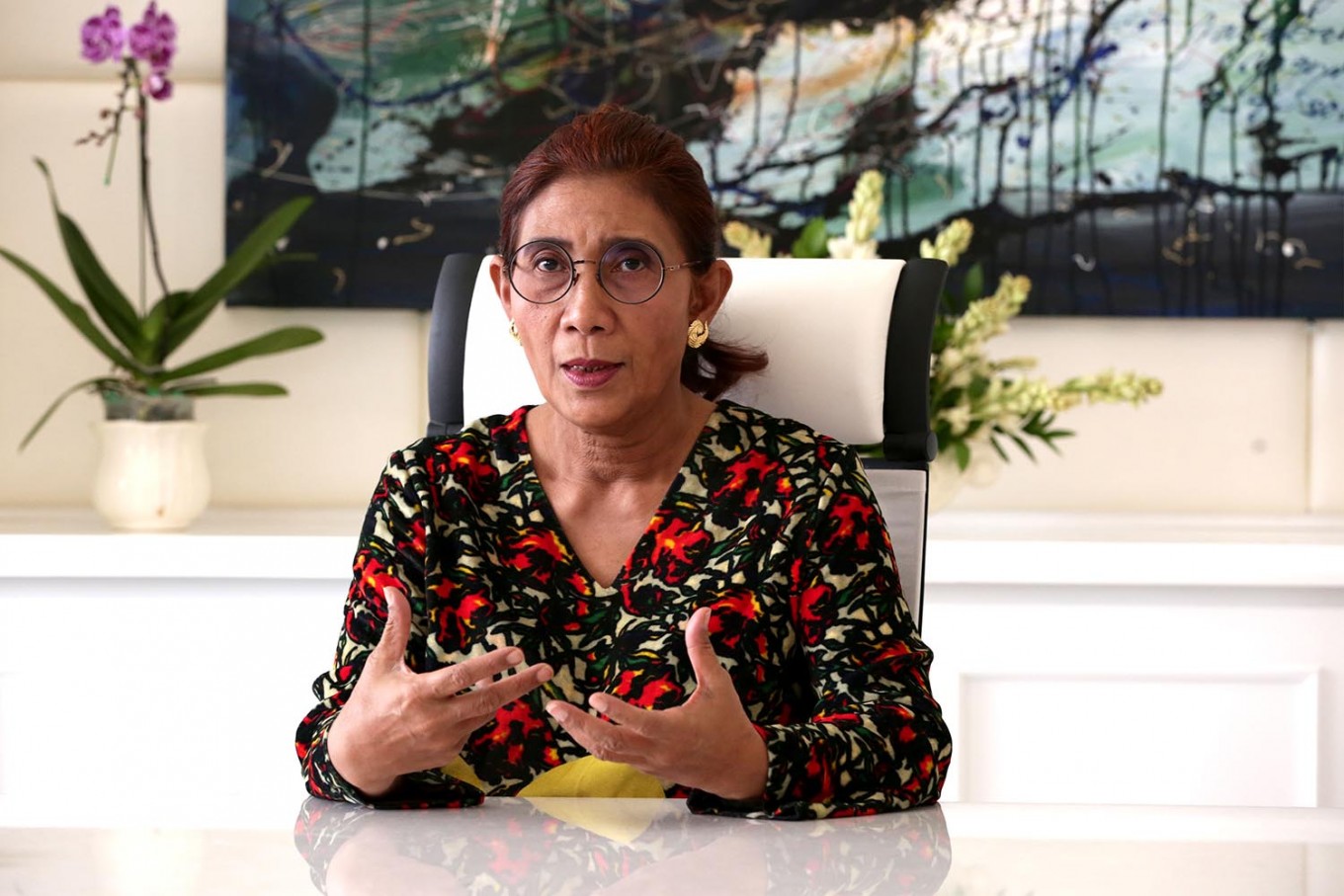Popular Reads
Top Results
Can't find what you're looking for?
View all search resultsPopular Reads
Top Results
Can't find what you're looking for?
View all search resultsMinister Susi tells fishermen to maintain sustainable way in catching crabs
Maritime Affairs and Fisheries Minister Susi Pudjiastuti praised the sustainable way fishermen in Demak regency, Central Java caught crabs by using bubu (fish traps) as they allowed captured crabs to continue to breed.
Change text size
Gift Premium Articles
to Anyone
M
aritime Affairs and Fisheries Minister Susi Pudjiastuti praised the sustainable way fishermen in Demak regency, Central Java caught crabs by using bubu (fish traps) as they allowed captured crabs to continue to breed
Susi, who was in Betahwalang subdistrict, Bonang district, Demak, on Monday to participate in the Sedekah Laut ritual with local fishermen, called on fishermen to maintain their environmentally friendly fishing practices.
During the ceremony, she went about two kilometers out to sea off the beach to where the ritual was held as an expression of gratitude to God for the good catch. After the ritual she enjoyed a meal on the water with the fishermen.
Susi said the price of the rajungan (crabs) that were caught with bubu were between Rp 75,000 and Rp 90,000 per kilogram higher than those caught with arad (mini trawls), which fetched Rp 70,000 per kilogram.
“Indonesia is the third largest crab exporting country with the United States as the biggest destination,” Susi added, adding that, however, she called on fishermen to maintain their wise way of catching crab amid the high demand for the commodity as it was in line with the efforts to conserve the species.
She also told fishermen not to catch the older female crabs as they could lay 1.3 million eggs.
Susi also called on fishermen to keep the sea clean, particularly of plastic waste, as a clean sea would help crabs breed well. “If you continue dumping plastic waste into the sea, later you will not see crabs in your bubu, but plastic waste instead.”
Statistics from 2005 to 2014 showed that the waters around Java contributed 46.6 percent to total crab production, the most in Indonesia.
Betahwalang itself is home to 670 boats used for catching crabs. Of them, 525 use bubu and the rest use arad. The subdistrict is among the biggest crab production centers in Indonesia apart from Pemalang, Pati and Rembang.
Catching crabs is the main source of income for the fishermen in Betahwalang. “I catch between six and 10 kilograms of crabs once to the sea,” Haris, a local fisherman, said. (bbn)










